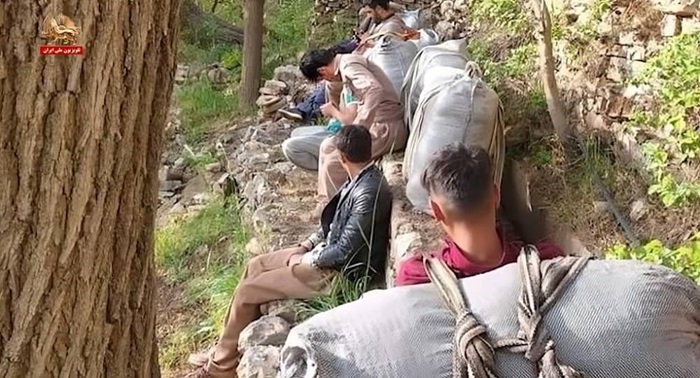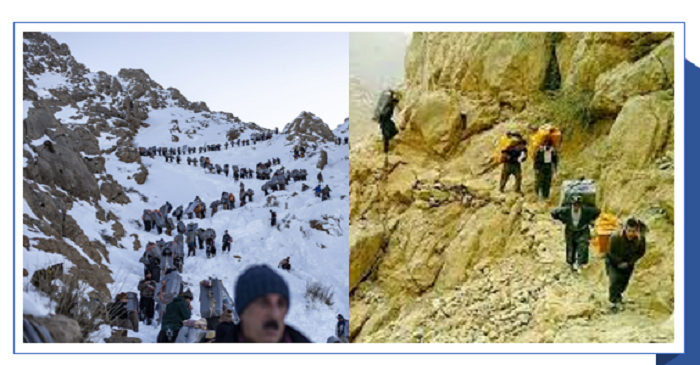
In a heart-wrenching sequence of events, Kurdish porters known as “Kolbars” have once again fallen victim to the lethal force of Iranian border guards.
Reports from Kurdish sources detail the loss of three young lives in less than 24 hours, casting a harsh light on the dangers faced by those who traverse treacherous terrains to earn their living.
On the evening of April 13, Mehrdad Abdollahzadeh, a resident of Marghan village in the Sardasht district, was fatally shot by state border guards. Following the gunfire, he tragically fell from a height, leading to his immediate death. The same night, another young Kolbar, 20-year-old Mehdi Abdollahzadeh, was targeted and shot by military personnel in the mountainous region near Bitush village, also within Sardasht. The young man succumbed to his injuries after a perilous fall.
The third victim of the day, Omid Saeedi from Sanandaj, met a similar fate at the Bastam border in Saqqez. After an exhaustive eight-hour search by the local community, his body was found and transported to the legal medical center in Saqqez.
These incidents underscore the perilous conditions under which Kolbars operate. Driven by economic necessity, these Kurdish citizens carry heavy loads through rugged mountainous terrains, often exposing themselves to extreme danger.

The role of a Kolbar is not one of choice but of compulsion, as it is often one of the few available means to support their families in the impoverished regions of Iranian Kurdistan.
Over the past 13 years, from 2011 to 2023, statistics from Kurdish advocacy groups have highlighted the grim reality for Kolbars. A staggering 2,463 individuals have been killed or injured in incidents involving Kurdish-inhabited cities. More than 74% of these casualties were the result of military gunfire, with 64 victims under the age of 18.
The ongoing crisis is not limited to the Kurdish Kulbars. Baluchi fuel porters, operating under similarly dire conditions in the Sistan and Baluchestan Province, face comparable risks. In 2023 alone, at least 513 individuals in this group were reported killed or injured while attempting to eke out a living. International human rights organizations have repeatedly condemned these summary killings and have called for urgent action to address the impunity with which Iranian forces operate.
#Iran Regime Fires on Border Couriers and Slaughters Dozens of Horses
Over the weekend, the Iranian regime’s security forces killed& injured a number of impoverishes border couriers, known as ‘Kulbars’, &slaughtered some 200 of their horses in….https://t.co/AjKFhPiJEm pic.twitter.com/oekEZZ2RX2— NCRI-FAC (@iran_policy) May 22, 2018
The plight of Kulbars and Baluchi fuel porters represents a stark violation of human rights, highlighting a need for global attention and intervention to prevent further loss of life in these communities. As the deadliest year in over a decade unfolds for these hardworking individuals, the international community faces a moral imperative to act, ensuring that economic desperation no longer costs innocent lives at the borders.

MEK Iran (follow us on Twitter and Facebook), Maryam Rajavi’s on her site, Twitter & Facebook, NCRI (Twitter & Facebook), and People’s Mojahedin Organization of Iran – MEK IRAN – YouTu
